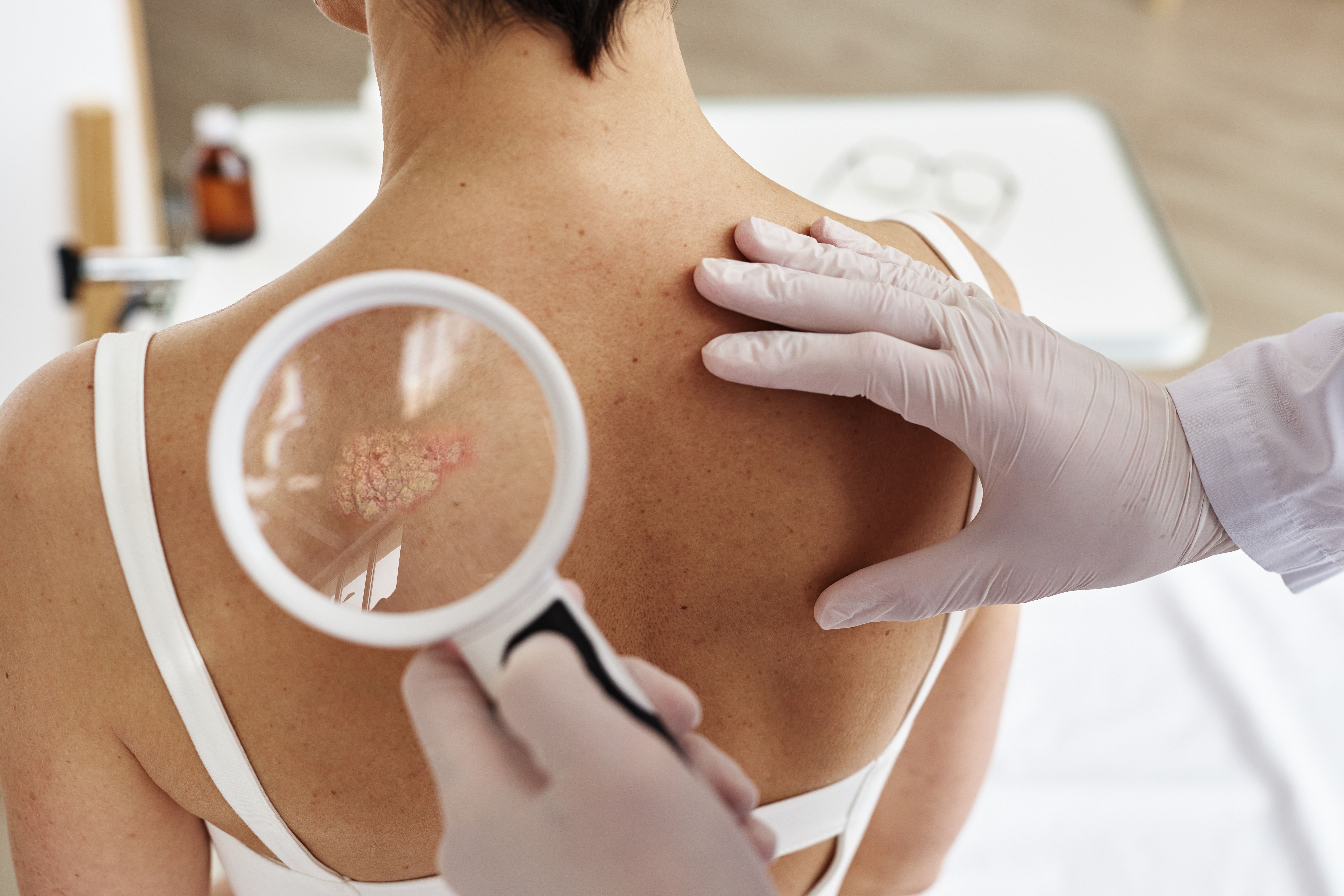- Acne
- Actinic Keratosis
- Aesthetics
- Alopecia
- Atopic Dermatitis
- Buy-and-Bill
- COVID-19
- Case-Based Roundtable
- Chronic Hand Eczema
- Chronic Spontaneous Urticaria
- Drug Watch
- Eczema
- General Dermatology
- Hidradenitis Suppurativa
- Melasma
- NP and PA
- Pediatric Dermatology
- Pigmentary Disorders
- Practice Management
- Precision Medicine and Biologics
- Prurigo Nodularis
- Psoriasis
- Psoriatic Arthritis
- Rare Disease
- Rosacea
- Skin Cancer
- Vitiligo
- Wound Care
News
Article
5-Year Safety Data Leaves Clinicians Optimistic in Upadacitinib for AD Management
Author(s):
Christopher Bunick, MD, PhD, presented the research during a late-breaking research session during the 2023 Revolutionizing Atopic Dermatitis Virtual Conference.
Results from the largest safety study for upadacitinib (Rinvoq) to manage atopic dermatitis (AD) shows promising long-term data and was presented during a late breaking research session during the 2023 Revolutionizing Atopic Dermatitis Virtual Conference on December 10, 2023.Christopher Bunick, MD, PhD, associate professor of dermatology and physician-scientist at the Yale School of Medicine in New Haven, Connecticut, showed 5-year safety data on upadacitinib in 15mg and 30mg doses totreat moderate to severe AD.
The data integrates 3 global Phase 3 studies: Measure Up 1 (NCT03569293), Measure Up 2 (NCT03607422), and AD Up (NCT03568318). The unique aspect of this presentation is the extended follow-up period of260 weeks, making it the longest safety study for any systemic agent in AD. The study included around 2700 patients, and notable findings included the representation of a diverse patient population with cardiovascular risk factors and the durability of upadacitinib, as evidenced by low discontinuation rates due to adverse events.
In terms of adverse events, the presentation highlighted exposure-adjusted rates per 100 patient years. Notably, there were low discontinuation rates (about 4 events per 100 patient years) and minimal events leading to death (<0.1), indicating the drug's safety and durability. Specific adverse events or special interests, such as serious infections, active tuberculosis, herpes zoster, non melanoma skin cancer, malignancy, gastrointestinal perforations, and venous thromboembolic events (VTE), were analyzed. Key points include stable rates across the 1 to 5-year time frame, with no new safety signals and very low event rates.
The trials demonstrated consistent event rates over 1, 3, and 5 years, reinforcing the drug's stability and safety. The presentation also contextualized adverse event rates of malignancy, major adverse cardiovascular events (MACE), and VTE in comparison to background rates in the general population and AD patients.
In summary, this presentation signifies the largest safety study for an AD systemic therapy, with upadacitinib showing a favorable safety profile over a 5-year period. The highest signal was herpes zoster, emphasizing the importance of considering shingles vaccine. MACE, VTE, and malignancy exhibited rock-bottom rates, comparable to or even lower than background rates, suggesting potential anti-inflammatory and cardiovascular protective effects. The conclusion is that prescribing upadacitinib for patients with AD can be considered with confidence.
Reference
Bunick, C. Long-term 5-year safety of upadacitinib in moderate-to-severe atopic dermatitis: An integrated analysis including over 7000 patient-years of exposure. Presented at: 2023 Revolutionizing Vitiligo Virtual Conference; December 10, 2023.
Newsletter
Like what you’re reading? Subscribe to Dermatology Times for weekly updates on therapies, innovations, and real-world practice tips.












